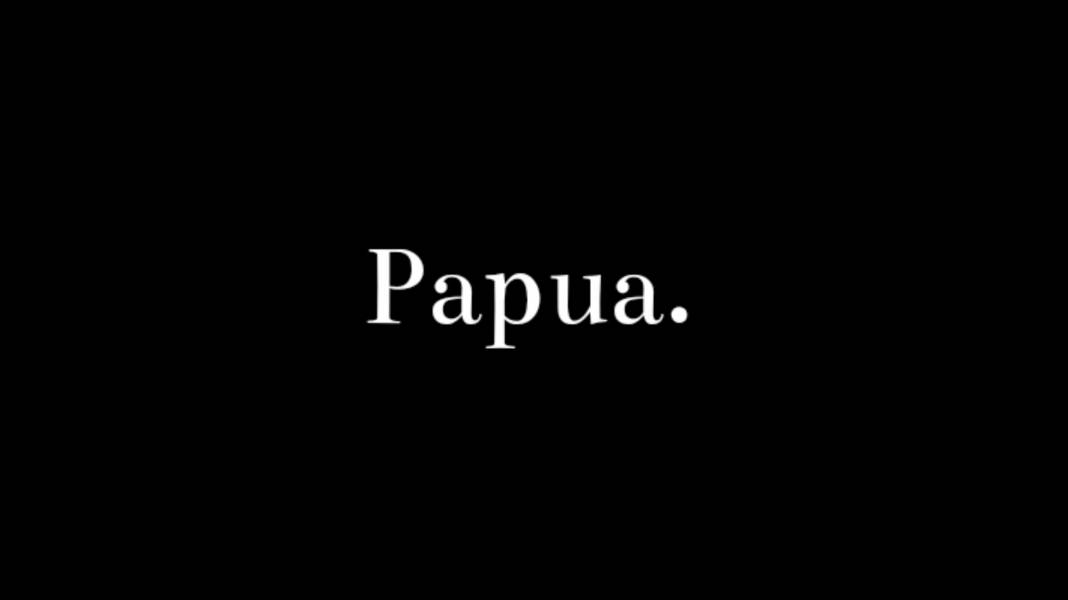Many political scientists often debate the term ‘state-terrorism.’ However, a highly influential definition is that of Ruth Blakeley’s. Ruth fragments that the variables of state-terrorism are an act of violence against individuals that the state must protect.
In doing so, an act of terror is done on behalf or conjunction of the state (often using paramilitary), and threats of violence are intended to induce extreme fear in some target observers, and the target is forced to change their behaviours. With this in mind, the question remains, is the Indonesian Government becoming state-terrorist for Papuans?
It would not be farfetched to state that the Indonesian Government has created terror in Papua and elsewhere by enforcing the UU ITE (Indonesians Law of Electronic Information and Transaction). After the large-scale protests against racism and inequality, riots escalated across many cities in Papua. Recently, there have been 28 causalities in the city of Wamena (24/09).
The Indonesian Government then disconnected the internet for weeks in an attempt to stop hoaxes and propaganda. They argued that disconnecting the internet is legal due to the UU ITE. However, this seemingly wrong policy only exacerbated the riots. The information was then hard to validate, given that prejudice and assumption has travelled wildly. As a further retaliation, the Indonesian Government has restricted journalism activities in Papua, thus compounding the problems.
This riot initially exploded because a Papuan student dormitory in Surabaya refused to raise the Indonesian flag on the 17th of August, 2019 (74th Indonesian Independence Day). This event then created and escalated hatred between some local Surabaya people and Papuans, resulting in an altercation fuelled by racism and xenophobia. As a response, police were involved. However, there have been reports that some policemen exhibited racism in their approach towards Papuans.
As always, the Government reacted to the riots by sending more military forces toward Papua. They may think that bullets and guns can make Papuans calm, silent and abiding. Indeed, the logic of the Indonesian Government is that it is simpler to force people to remain silent rather than listen to what they want.
They go against their people. Similar to how Russia thinks to beat Chechnya secessionists, the Indonesian Government believes that this force has legal backing to maintain law and order.
Wiranto, Coordinator Minister of Law and Human Rights of Indonesia, responded that the Government knows who took advantage of the Papua riots (30/09). He pointed out some actors that were intellectual designers of these riots. Palpably, this statement communicates to the public that the riot was not due to mismanagement, inequality, and the aspiration of Papuans, but rather due to Papuan’s being opponents of the Government.
Instead of discussing what the Government can do with Papua and evaluate the charges of racism within police or the effects of military force, he shifted the blame to Papuan’s, describing their actions as an act of conspiracy. The Government then used the UU ITE to take down any critics and propaganda, regardless of whether they were true or not.
This is the politics of labelling. When the ones who are in power brazenly use their hegemony to frame individuals or groups that attempt to question those in authority as criminals, separatists, or even terrorists. Thus, an attempt is made to push public opinion to a single viewpoint. Whoever tries to see from an alternative side will be called radical.
Recently, the Government suspected Veronica Koman (a human right activist) as a provocateur just because she tweeted some radical thoughts regarding Papua’s riots. The UU ITE, once again, was misused to arrest Veronica or even radically revoke her passport.
Veronica’s case has created fear in the minds of progressive Indonesians that by raising their radical voices or challenging the Government, they will also be accused by UU ITE. To put it bluntly, this law signifies a terror on the freedom of speech.
Is the Indonesian Government becoming state-terrorists? Perhaps all of the repression that the Indonesian Government did is merely state violence. Indeed, it is not enough to claim that the Indonesian Government is terrorists by a single definition. They do not reportedly enforce paramilitary or constitutively do not violate any law (yet).
The definition of ‘terrorist’ often refers to violence against non-combatants and the Indonesian Government claims they are fighting the separatists. The terrorist also refers to violent groups that seek publicity for their action, but the Indonesian Government hides the riot by disconnecting internet and bans journalism access.
However, they do make laws as threats to sew people’s mouths shut, using these terrors by-laws and military as repression in an attempt to shut down radical thoughts. Regarding Ruth’s definition, Indonesia may be seen as state-terrorism, but further research is necessary to ascertain the validity of this claim.
Many Indonesians feel uncomfortable, restricted and terrorized by their laws. Criticising the Government and freedom of speech are becoming myths that are buried beneath the terror of UU ITE. UU ITE has created fear amongst those that challenge the norm. Today, those that are affected are Papuan’s and Veronica Koman, but tomorrow it could be anyone that stands up for their democratic right.

